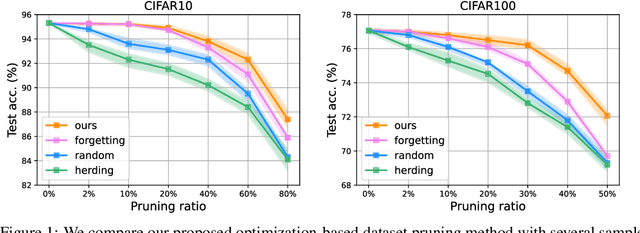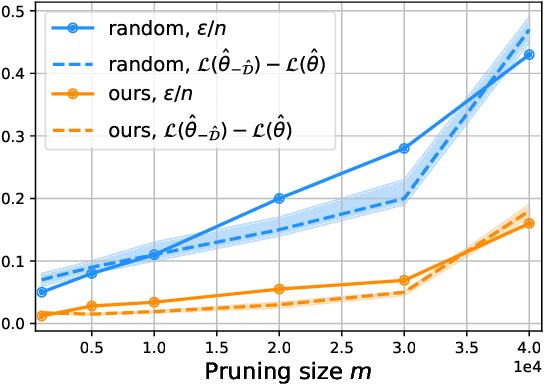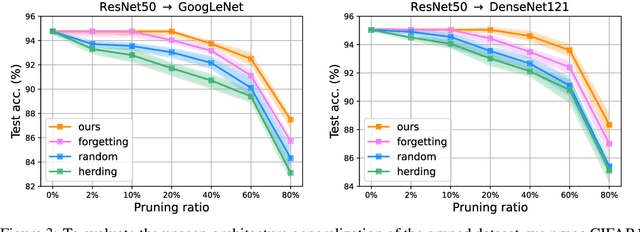Dataset Pruning: Reducing Training Data by Examining Generalization Influence
Paper and Code
May 19, 2022



The great success of deep learning heavily relies on increasingly larger training data, which comes at a price of huge computational and infrastructural costs. This poses crucial questions that, do all training data contribute to model's performance? How much does each individual training sample or a sub-training-set affect the model's generalization, and how to construct a smallest subset from the entire training data as a proxy training set without significantly sacrificing the model's performance? To answer these, we propose dataset pruning, an optimization-based sample selection method that can (1) examine the influence of removing a particular set of training samples on model's generalization ability with theoretical guarantee, and (2) construct a smallest subset of training data that yields strictly constrained generalization gap. The empirically observed generalization gap of dataset pruning is substantially consistent with our theoretical expectations. Furthermore, the proposed method prunes 40% training examples on the CIFAR-10 dataset, halves the convergence time with only 1.3% test accuracy decrease, which is superior to previous score-based sample selection methods.
 Add to Chrome
Add to Chrome Add to Firefox
Add to Firefox Add to Edge
Add to Edge